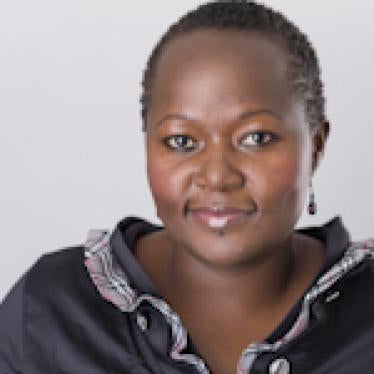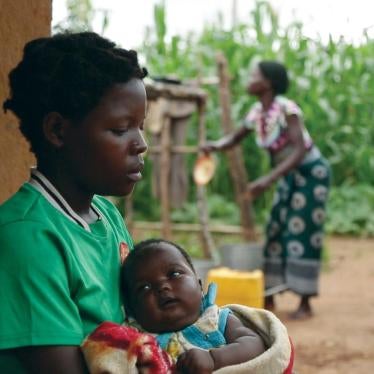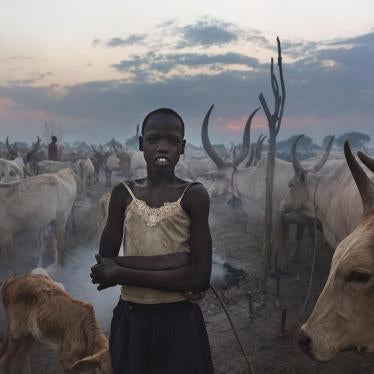When she was 12, Chimwemwe, from a rural village in southern Malawi, married a 17-year-old boy. She had started having sex with him when she was 10 because, she said, he gave her money and small gifts, while her parents could not afford to feed her or buy her clothes.
Chimwemwe, not her real name, became pregnant, and their families forced them to marry. When I interviewed her in September 2013, two years into her marriage, she said: "I've never experienced happiness in my marriage. I've never seen the benefit of being married." Her husband beat her, she often went without food and she had almost died giving birth.
Chimwemwe dropped out of school in standard four (equivalent to fourth grade) but said she does not want to go back because "I feel I was not good with books."
On July 22, the United Kingdom and Unicef, the United Nations children's agency, are hosting the global Girl Summit 2014 in London to mobilize domestic and international efforts to end child, early and forced marriage, and female genital mutilation within a generation. Chimwemwe's story illustrates the challenge they are facing.
The meeting will bring together governments, international donors, nongovernmental groups, activists, community and religious leaders and the private sector to adopt a plan for concrete action. Participants are expected to make commitments, and there are plans for a global process to track progress on carrying them out.
Forum for Girls and Women
Significantly, leaders will hear from girls and women who married as children. In my work, I have seen the devastating impact of child marriage on girls and women in countries such as South Sudan, Malawi andTanzania. While the contexts were different, the stories they shared with me were similar.
Girls were beaten, verbally abused, threatened or thrown out of their homes by their families for rejecting forced marriages. They were sexually abused and abandoned by their husbands, often left to care for children without any financial support.
Child brides were financially dependent on often abusive spouses, in part because they lacked the education and skills to provide for themselves and their families. I heard stories about girls who were so broken by the forced marriages that they contemplated suicide. I also interviewed and was inspired by girls who made heroic efforts to escape this fate, to control their own lives. Too often, though, they didn't get the help they needed.
Although some countries have made notable progress, there has been little change in global rates of child marriage. In this decade (2011-2020), 142 million girls worldwide will be married if current trends continue.
More Girls, Communities Saying No
The good news is that more communities and girls themselves are standing up to say no to child marriage. I have spoken to dozens of women and girls who, without any support, fled their abusive spouses or stood up to their families, often at great risk. And there is growing global momentum and support by nongovernmental organizations, international agencies, governments, and global leaders to address this problem, for example at the Human Rights Council in Geneva and at the African Union.
This summit should support these efforts by making governments, international donors and others in a position to help to make commitments to address the multiple and interconnected factors driving child, early and forced marriage, and to promote girls' human rights.
Knowing what does and doesn't work to end child, early and forced marriage should be a basic starting point. It is encouraging that one of the goals of the summit is to share best practices and understanding.
Part of the problem has been a lack of documentation and evaluation of existing programs to end child marriage, so there is little information available on what approaches work, and in what contexts.
Governments and donors need to shift the way they work, by supporting the systematic monitoring and evaluation of such programs. That way, they can channel their investments to efforts that bring about real change, and actually end child marriage within a generation. Without this smart and comprehensive approach, by both national governments and international donors, girls, women and communities will continue to suffer unnecessarily from the impact of child, early, and forced marriage.









